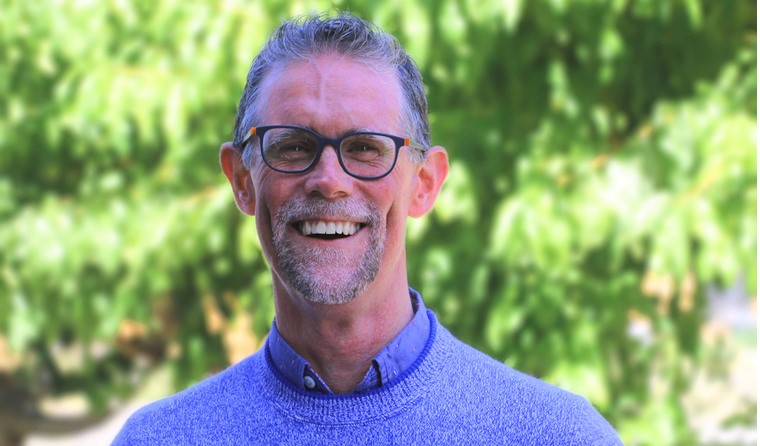News
GP launches petition against ‘unfair’ MBS changes to telehealth
Dr Todd Cameron is adamant mandating use of video technology for consults longer than 20 minutes will create a barrier for patients with chronic and complex health needs.
 The petition is raising awareness among GPs and patients, and so far has more than 3400 signatures.
The petition is raising awareness among GPs and patients, and so far has more than 3400 signatures.
It has been a challenging 15 months since the COVID-19 pandemic was declared, but through the trying circumstances the expansion of telehealth has been lauded as a big win.
But as of 30 June, the current telehealth model is set to change.
To receive Level C and D rebates from the Medicare Benefits Schedule (MBS) a telephone will no longer be adequate, requiring GPs and patients to have access to video technology.
The incoming changes have raised significant concern among some GPs, including Dr Todd Cameron, who fears the policy unfairly targets patients who are already disadvantaged. And if they go ahead, he predicts telehealth use will markedly decline, worsening access to care as a result.
‘I think you’ll see a fairly wholesale abandonment of telehealth,’ Dr Cameron told newsGP.
‘The groups that mostly need healthcare [are] people [who] have social disadvantage and elderly people with mobility issues. They’re not going to go and buy a better phone and upgrade their NBN.
‘And so doctors will abandon that because it’ll all get too hard and they’ll just say to patients “Bad luck, come in” and go back to less convenient healthcare.
‘Then the only people that use it will be the people that … don’t really need it. It becomes about convenience and lifestyle, rather than need. So perversely, we’re creating an outcome, which is opposite to what we want.’
The RACGP’s 2020 Health of the Nation report shows 97% of GP respondents have started providing care via telehealth since the pandemic began, up from just 15%, and 64% believe the service has improved patient access to care.
It also shows that GPs are willing to incorporate new ways of consulting, with 30% having attempted to provide telehealth via video in April. However, only 4% reported that they continued doing so, with many citing a variety of major hurdles, from internet problems and equipment shortages, to patient-end issues.
‘That tells us that there’s a big problem with video,’ Dr Cameron said of the data.
‘Some of the purveyors of video [have] said, “Well it’s the gold standard”. I’m actually not convinced that that’s true. I don’t know that there’s any evidence that it is, and it’s certainly not what patients are saying.
‘The vast majority of people use telephone because it is easier for everybody.
‘Frankly, I think that it would be really hard for the Federal Government to argue [it is achieving] anything other than creating an intentional barrier to good care.’

Dr Todd Cameron fears if the changes go ahead, use of telehealth will decline, further disadvantaging people of a lower socioeconomic background and the elderly. (Image: Supplied)
Dr Cameron has decided to address the issue head on, by launching an online petition to raise awareness among both his colleagues and, in particular, patients themselves.
To date, it has been signed by more than 3400 people, but the GP has his sights set on at least 100,000 signatures. The importance of telehealth has also once again been drawn into sharp focus by recent events in Melbourne, which is currently in the second week of lockdown amid a new COVID outbreak.
‘There’s a really good opportunity for us to align with patients, we just have to get the message out there,’ Dr Cameron said.
‘There’s 39,000 GPs straightaway [but] that’s not going to make a big dent politically. But if patients get behind this and see that they’re being ripped off, that’s where the goal is.’
While the focus of Dr Cameron’s campaign is on patients, he says flexibility around telehealth also offers clear benefits for GPs when it comes to work–life balance and believes it could help to make the profession more appealing to graduates.
‘It does actually, for the first time ever, free doctors up to be able to work from home, at least some of the time if they batch that work appropriately,’ he said.
‘We’ve got a far lower portion of medical school graduates choosing general practice [and] that says that general practice is becoming extremely unappealing to graduates, and that healthcare is going to be more American style – it’s going to cost us more and it’s going to provide fewer good quality population-based outcomes.
‘The solution for all of us as GPs is just to charge everybody more … but I don’t think people are really comfortable with that outcome. GPs are pretty empathic people and mostly altruistic, so they kind of tolerate a lot of stuff just at the expense of doing the right thing. But I honestly think that’s pretty close to breaking point.
‘If we don’t start narrating this story … by the time everyone wakes up and realises what’s happened, it’s too late.’
Log in below to join the conversation.
chronic COVID-19 disease MBS telehealth work-life balance
newsGP weekly poll
Which of the following areas are you more likely to discuss during a routine consultation?